-
Spotting the Signs of Gingivitis
Failing to take care of your teeth properly and see your dentist in Bel Air on a regular basis can result in problems such as gingivitis. If left untreated, this condition may progress into periodontal disease and can result in tooth loss. It is helpful to familiarize yourself with the various signs and risk factors associated with gingivitis. Continue on if you could use some help spotting the signs of gingivitis.
The symptoms of gum disease are not always obvious, which makes the condition difficult to detect in some cases. One of the most prevalent red flags is the presence of blood when you brush your teeth. If you notice that your gums are bleeding, it is wise to schedule an appointment with your dentist in the near future. Your gums may also be swollen and tender to the touch. Another sign of gingivitis is shifting of your teeth or change in your bite. If you feel like your teeth do not fit together the way they usually do, visit your dentist to find out if you have gingivitis. Individuals who use tobacco products, practice poor dental hygiene, or have certain illnesses should be particularly wary regarding these signs.

-
The Dental Patient’s Guide to Crowns
It is important to set up a consultation with your dentist in Bel Air in order to determine what kind of dental treatment is best for your needs. However, it is also helpful to learn about the various types of procedures beforehand so that you can get an idea of what to expect. Dental crowns are used to treat many dental issues including weak or broken teeth, tooth decay, and missing teeth when used with dental implants. Read on for the dental patient’s guide to crowns.
Preparation and Procedure
If you and your dentist have decided that a dental crown is the optimal treatment for your situation, you will make two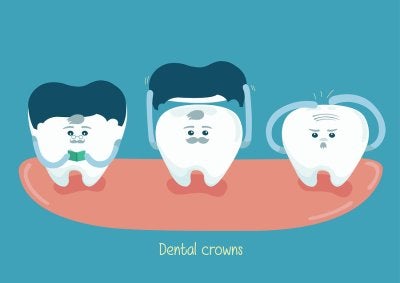 appointments. The first appointment presents your dentist with the opportunity to examine your teeth, gums, and jawbone. He or she may determine that a root canal treatment is necessary before going through with the dental crown procedure. After anesthetizing the tooth and gum tissue, your dentist will file down your tooth so that there is room for the crown to sit properly. He or she will then send an impression of your tooth to a lab, and a crown will arrive in two to three weeks . During the second appointment, your dentist will double check the permanent crown and then cement it.
appointments. The first appointment presents your dentist with the opportunity to examine your teeth, gums, and jawbone. He or she may determine that a root canal treatment is necessary before going through with the dental crown procedure. After anesthetizing the tooth and gum tissue, your dentist will file down your tooth so that there is room for the crown to sit properly. He or she will then send an impression of your tooth to a lab, and a crown will arrive in two to three weeks . During the second appointment, your dentist will double check the permanent crown and then cement it. Types of Crowns
Dental crowns are incredibly versatile in that there are many different types to choose from. Metal crowns tend to be among the most durable, and they typically require less removal of tooth structure. Ceramic and porcelain crowns, on the other hand, can be made to match your natural tooth color but tend to wear down over time. Dental crowns made completely of resin are most affordable, but they may also be most susceptible to cracking.Maintenance and Working Life
A dental crown can be an excellent restoration that improves the aesthetic appeal and function of your tooth, but it is important to care for them. Brush your teeth twice each day and floss once per day, and be sure to visit your dentist on a regular basis. Properly cared for crowns can last for up to fifteen years. -
Aging and Cosmetic Dentistry
Cosmetic dentistry in Bel Air can help you get the smile you want! It is normal for teeth and gums to get weaker and less attractive as we get older. This can result in chips, cracks, discoloration, and even missing teeth that make it hard to feel confident in your appearance.
As you will see in this video, cosmetic dentistry offers many different procedures to help older patients get back their bright and beautiful smiles. Teeth whitening is a simple yet highly effective option for removing stains. Porcelain veneers can also improve the look of stained, chipped, worn, and misaligned teeth. A new cosmetic dentist can also help you replace old or damaged restorations with strong and natural-looking options for a beautiful smile.
If you are ready to get a smile you will love showing off, contact a Bel Air cosmetic dentist today!
-
How You Can Take Care of Your Child’s Teeth
Dental health is important at every age! Family dentistry in Bel Air offers a helping hand in taking care of children’s teeth, but the biggest responsibility starts at home. As parents, it is important to teach children why dental health is so important, as well as how children can keep their teeth and gums healthy:
Keep Gums Clean Before Teeth Emerge
Children typically start getting their primary teeth around four to seven months of age, but that does not mean you should wait until then to start good dental hygiene habits. Keep your baby’s gums clean and healthy by gently rubbing a damp washcloth over them to remove bacteria and food debris. When teeth start appearing, use an infant toothbrush with a tiny amount of toothpaste and a larger amount of water.
Make Brushing and Flossing Fun
When your child is ready to start brushing his teeth on his own, you can encourage good habits by making dental health fun! Keep a radio in the bathroom so you and your child can listen to songs while brushing. This will make the process more enjoyable and help ensure that your child is brushing his teeth for an adequate amount of time. You can also create a game with brushing or flossing or use stickers to reward good dental habits.Be a Good Dental Health Role Model
You can help your child learn about the importance of dental health by maintaining your own dental health! Children constantly look to parents to learn how to act. Showing your child that you love to take good care of your teeth and gums will encourage him to do the same. You can even brush your teeth together in the morning and at night to be each other’s dental health buddies.Visit the Dentist Regularly
Both you and your child should visit the dentist at least twice a year for regular checkups. Start taking your child to the dentist early so it is easier for him to become comfortable and familiar with this environment. Regular dental checkups can also help ensure that your child is practicing proper dental hygiene habits! -
Whitening Your Teeth with BriteSmile
Think about your favorite foods and drinks. Would they stain a white T-shirt? If the answer is yes, then these foods and drinks are also staining your teeth. Coffee, tea, soda, wine, and even dark berries can stain your teeth and take away from the beauty of your smile. But you do not have to avoid these food and drinks—you can get rid of stains with BriteSmile!
Your Bel Air cosmetic dentist can help you learn more about BriteSmile. This teeth whitening solution works by applying a whitening gel to the teeth and then activating the gel with a blue light for approximately 20 minutes. Cosmetic dentistry patients typically receive three 20-minute sessions during each visit. Not only will patients be able to enjoy a whiter smile, they will also have time to relax and watch TV or listen to music during the treatment.
BriteSmile can help you get rid of years of stains to reveal brighter and whiter teeth! Discover more about this Bel Air teeth whitening procedure from your cosmetic dentist.
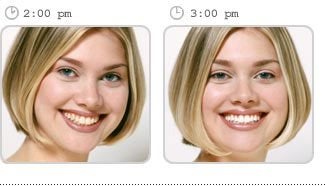
-
What to Expect from Wisdom Teeth Removal
Do you still have your wisdom teeth ? Some people have enough room in their mouths to safely contain these teeth, but most patients need to visit a dentist in Bel Air for wisdom teeth removal. If you need to get your wisdom teeth remove, this blog can help you determine what to expect from the process:
Getting Anesthesia
Your dentist will give you some sort of anesthesia before starting removal so that you can stay comfortable and relaxed during the procedure. Local anesthesia is administered by injection and numbs the area in which it is used. Patients who receive local anesthesia remain awake during the process. Sedation anesthesia is administered through IV and sedates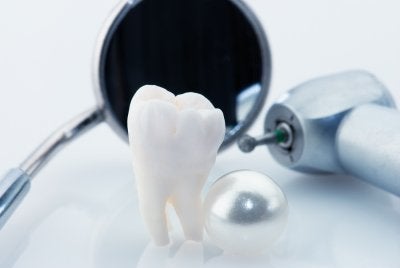 patients for the procedure, though they technically remain awake. General anesthesia can be administered through a face mask or IV and puts patients to sleep, helping them wake back up once the procedure is finished.
patients for the procedure, though they technically remain awake. General anesthesia can be administered through a face mask or IV and puts patients to sleep, helping them wake back up once the procedure is finished. Performing the Procedure
After choosing anesthesia and either numbing your mouth or putting you to sleep, your dentist will be ready to begin the procedure. Many patients get all four wisdom teeth removed during once procedure while others prefer to do multiple procedures because their wisdom teeth have come in at different rates or not all teeth require extraction. Your dentist will make an incision and remove any bone that may be in the way before removing the desired tooth. After cleaning the area, your dentist will stitch it back up and place gauze over it to control bleeding and start the healing process.Recovering After the Procedure
Once you are fully awake, your dentist will send you home with instructions for taking care of the incisions and prescriptions for medication that can help with pain and healing. It is important to rest immediately following the procedure and avoid any strenuous activities for at least a week. You will also be advised to avoid using straws for a week and avoid hard and sticky foods until your incisions have healed. Your dentist can provide more advice for ensuring that your mouth heals properly! -
How to Floss Properly
Prevent gum disease in Bel Air by learning how to care for your teeth and gums! Brushing your teeth is essential for removing food and drink residue that can lead to plaque and tartar—but it cannot reach every surface in your mouth! That is why it is also important to floss once a day. Flossing removes the food debris that get stuck between your teeth, resulting in a cleaner mouth and healthier teeth and gums.
Start by finding the right floss for your teeth. You should use approximately 18 inches to make sure you can clean between all of your teeth. Wrap each end of the floss around your middle fingers and carefully place the floss between two teeth. Create a U-shape around each tooth and move the floss up and down for proper cleaning. If you have a hard time using regular floss, ask your family dentist to recommend floss sticks or other products.
-
The Advantages of Invisalign
Are you ready to straighten your teeth and become confident with your smile? An orthodontist in Bel Air can help you say goodbye to your crooked smile and hello to beautiful teeth! Metal braces may be the traditional teeth-straightening option, but newer options can provide a much more comfortable experience. Invisalign offers a number of advantages over metal braces, such as:
Shorter Treatment Time
Getting a straight smile takes time, but some treatments take longer than others. Traditional metal braces take an average of two years to straighten teeth. Many patients complete their Invisalign treatments in six to twelve months! That is why Invisalign is such a popular option for teenagers and adults interested in straightening their teeth. You can start enjoying a straight smile faster if you choose Invisalign instead of metal braces.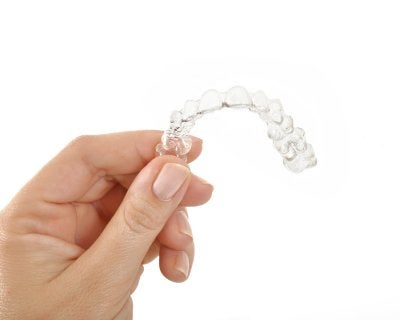
Ability to Remove Aligners
When you have metal braces, you are stuck wearing them all day and all night until your treatment is complete. Your orthodontist will advise you against eating certain foods that can get stuck or damage your braces, such as sticky candies and popcorn. You will also have a hard time brushing and flossing your teeth, putting you at risk for developing plaque. Invisalign uses clear aligners that are easily removed for eating and cleaning. This means you can eat what you want and keep up with proper dental hygiene!Increased Comfort
Metal braces are highly effective at straightening teeth. Unfortunately, the brackets and wires used in these braces can be extremely uncomfortable. Poking and prodding may be normal for these braces, but you can avoid these concerns by choosing Invisalign. Your orthodontist can show you the clear plastic aligners used during treatment so you can understand how comfortable they are, especially compared to metal braces.Discreet Treatment
A crooked smile can take a toll on your confidence. Metal braces can do the same. Sporting a mouthful of metal can be especially embarrassing for adults you want to straighten their smiles. With Invisalign, you will be able to straighten your teeth discreetly and without the metal. Aligners are nearly invisible, allowing you to start feeling more confident with each new pair! -
Meet Dr. Danielle Zhu
Home dental care is not enough to keep teeth and gums healthy—you also need to find a great dentist in Bel Air ! A great dentist will help you feel comfortable and make sure you understand concerns and treatment options that can improve your smile.
When you visit Your Smile, you can feel comfortable meeting with Dr. Danielle Zhu. Dr. Zhu specializes in a variety of dental fields, providing treatments for patients of all ages and with an assortment of concerns and dental emergencies. Before becoming a well-known dentist in Bel Air, Dr. Zhu earned her undergraduate degree from UMBC and went on to receive a dental degree from the University of Maryland Dental School. Dr. Zhu also has a prosthodontic clerkship and post doctorate training in advanced general dentistry on her résumé! Along with these accomplishments, patients can also feel comfortable knowing that Dr. Zhu is a member of the American Dental Association, the Academy of General Dentistry, and the Maryland State Dental Association.

-
A Look at Common Dental Emergencies
Do you know what to do in case of a dental emergency? Visiting an emergency dentist in Bel Air is the best way to find help. These dental specialists help patients of all ages with a variety of dental emergencies. This guide can fill you in on some of the most common dental emergencies and what to do if you experience one:
Toothaches
Have you ever gotten food stuck between your teeth? This experience can be annoying but is often remedied with floss or a toothbrush. When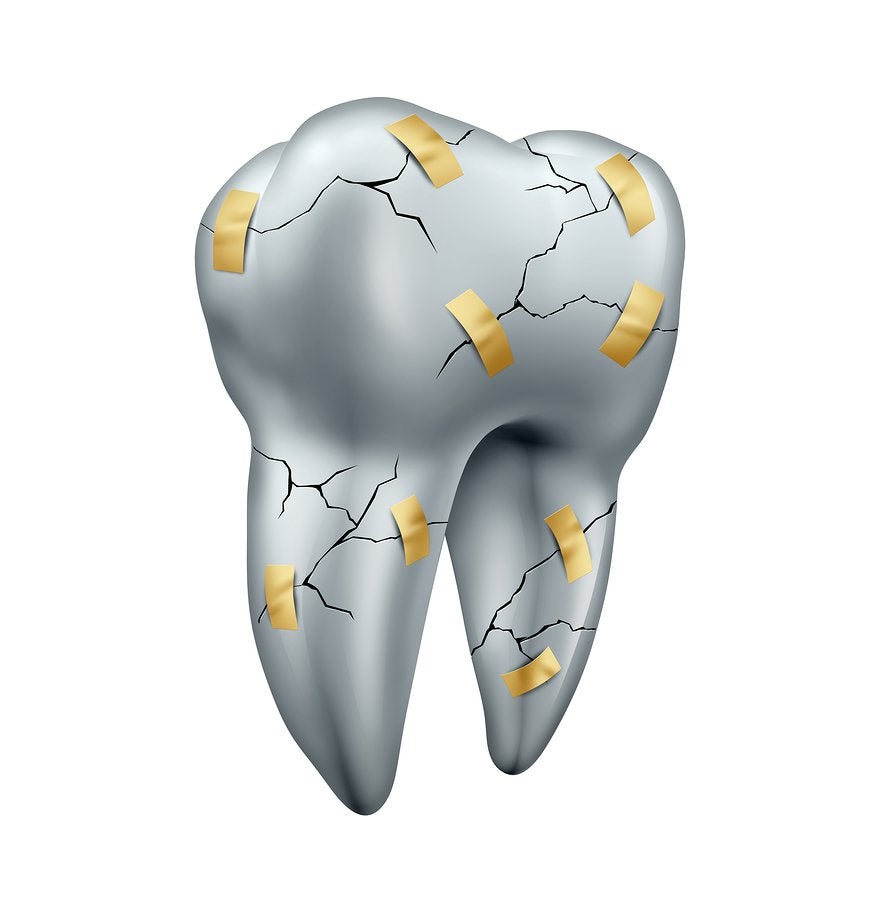
food is hard to reach, it can result in severe pain around the tooth and gum tissue. If you experience a severe toothache, try to remove food residue by rinsing your mouth out with warm water. Next, use dental floss to carefully floss around the affected tooth, as this might remove food debris that can be causing the sensation. If the pain does not subside, you should visit an emergency dentist as soon as possible.
Tooth or Jaw Injuries
Traumatic injuries can severely damage teeth or the jaw bone. These injuries can occur when people fall and tend to be most common among athletes who experience contact with other athletes or hard surfaces. It is important to seek emergency dental care for these traumatic injuries, as they are prone to infection and are often quite painful. Time is especially important when a one or more teeth get knocked out. The teeth may be saved if treated as quickly as possible.Broken or Chipped Teeth
Getting hit in the head can result in a broken or chipped tooth. This not only affects the appearance of your smile, it can also result in pain and difficulty eating. Treat the area by rinsing your mouth out with warm water. Rinse off any pieces of your tooth that you can find and store them in a safe place. Gauze can be used to stop bleeding and a cold compress can be applied to relieve pain and swelling until you get to the emergency dentist.
RECENT POSTS
categories
- Uncategorized
- General Dentistry
- Toothache
- Emergency Dentistry
- Family Dentistry
- Receding Gums
- Cosmetic Dentistry
- Veneers
- Gum Disease
- Gingivitis
- Dental Crowns
- Orthodontics
- Dental Implants
- Root Canal
- Wisdom Teeth
- Teeth Whitening
- Your Smile
- Composite Fillings
- Lumineers
- Dentures
- Invisalign
- BrightSmile
- Dental Bridge
- Abscessed Tooth
- Sealants
